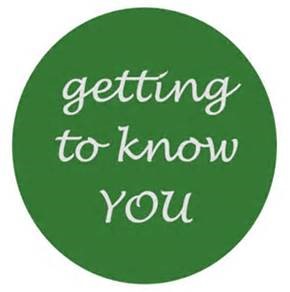
In my last post, I wrote about the importance of taking your time to build relationships with donors. Major gift fundraising is a “long game.” This is not direct-response fundraising, where you send out an appeal and within the first 10 days of response, you how well that appeal is going to do.
Building and growing a caseload of major donors takes years. It’s impatience from MGOs, managers and leaders that kills major gift programs. Everyone wants the money now. Who doesn’t? But if your organization expects to be around for decades, then you and they should understand that growth will only come through long-term cultivation and stewardship of donors.
In other words, major gift fundraising is an investment that will pay off if you have the patience and persistence to see it through. If you don’t have it, you should do political fundraising or work in direct-response.
So, how do you build lifelong relationships with donors? Here are some practical ideas – if you start on these now, you will reap large amounts of revenue in the future:
- Donors as mission. First, you need to believe firmly that donors are a part of the organization’s mission. This means that bringing joy to donors through their giving (helping them ultimately to transform their lives) is as important as the program work your organization does. Coming from this place changes how you relate to your donors.
- Meet with your donors. Seems simple, right? It’s not. It takes work, but your goal should be to meet with every donor face to face at least once or twice per year for those donors that want to meet with you. It doesn’t have to be at their office, house or local coffee shop, either. You may need to be creative. Attend an event they are also attending. Invite them for a visit at your organization. Figure out where your donors are, and go see them. There is nothing better you can do than to sit across from a donor and engage with him in a meaningful way. Nothing.
- Online research. I know one MGO who spends the first hour of every day just scanning for information about the donors on his caseload. He’s trying to find out if there is any news that will help him create a touchpoint with his donors. With 150 donors on his caseload, he inevitably finds something interesting with at least one of his donors that will lead to a connection. But of course, there are just massive amounts of other ways to find out more about your donors. I think the key is to block time in your schedule every day to make this happen.
- Personal notes. Remember the last time you received a personal note from someone in the mail? It made you feel really good about the person that sent it. You can make donors feel good about you and your organization by doing this simple act. Just to say you were thinking about them because X, or thanked them out of the blue for something they did for your organization or even in their community. I cannot stress this enough. If you want to build relationships with your donors, send them personal notes. Send them birthday cards, or anything on which you can handwrite a note. There is no excuse for you not to do 2-3 of these per day.
- Talk to people. One amazing way to form better relationships with donors is to talk with other people and find out if they know a particular donor. Board members, leadership, and program staff are all great sources to help you understand who your donors are and why they give. I heard a great story from an organization’s new MGO – she sat down right away with program folks to go over her portfolio, and she got all kinds of great information about what her donors were like. The program folks knew a bunch of the new MGO’s donors because those donors had been to see their programs through the prompting of a previous MGO. This gave the new MGO all kinds of great help to develop a connection with her donors. When she met with her donors, they were elated that she had all these great stories about them.
- Ask good questions, and listen. Many times when I hear from an MGO about how a donor visit didn’t go so well, it’s usually because the MGO wasn’t curious enough, or he didn’t really listen to the donor. Think about your personal relationships. If your friend never asked you how you were, what’s going on in your life, how your work is going, what you are struggling with… you probably wouldn’t want to be in that relationship very long. Most donors who want to relate to you have a desire to tell you their story. Ask them for it. And then, actively listen to them.
Remember, major gift fundraising is a long-term commitment from you to build relationships. It’s an incredible journey. Take the time to do it right.
Jeff






Thank you!